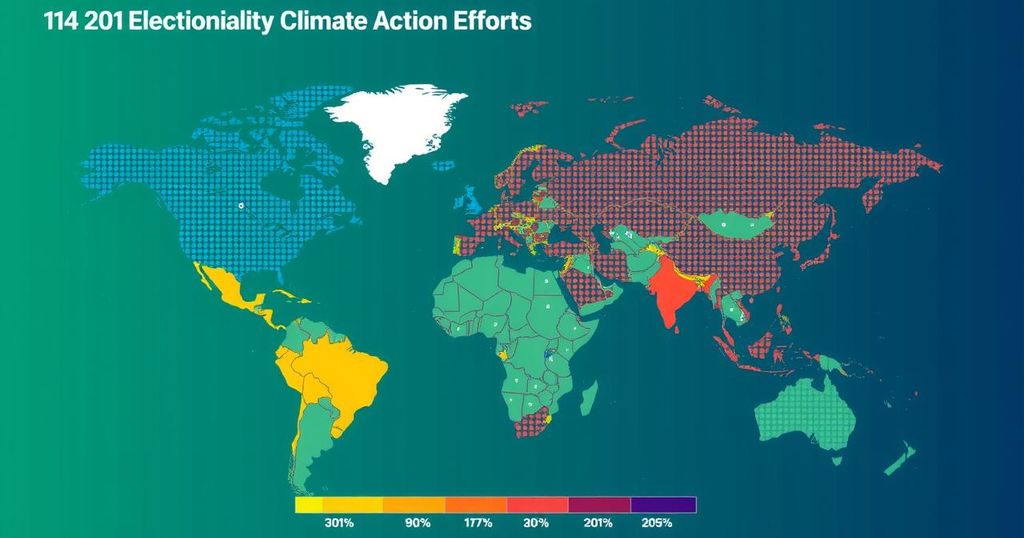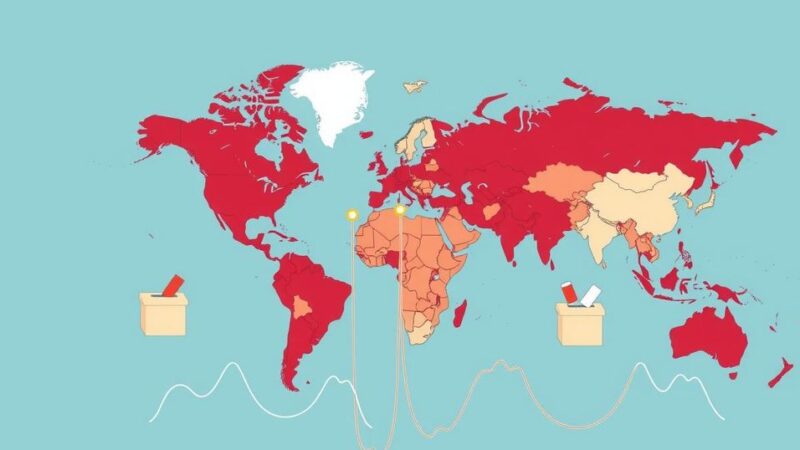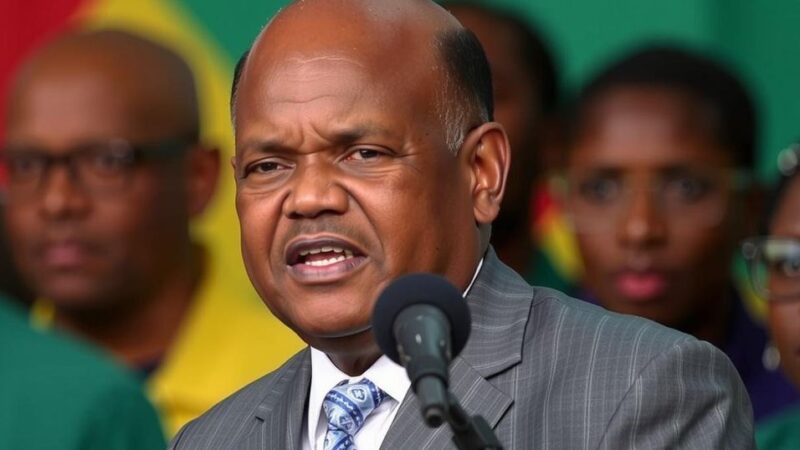The election year of 2024 reveals a critical decline in commitment to climate action worldwide, as political leaders increasingly prioritize economic concerns over environmental issues. This trend is marked by the success of climate-skeptic candidates and a troubling backdrop at the Cop29 summit, highlighting a disconnect that jeopardizes future climate progress. Experts warn of the risks posed by populism that undermines the urgency of climate initiatives, proposing a need for renewed focus on collective action.
The current election year of 2024 has highlighted a distressing trend regarding global climate commitments, with many nations demonstrating weakening resolve to address the climate crisis despite worsening environmental conditions. Unprecedented elections have resulted in significant victories for individuals with climate-skeptical stances, ensconcing a political atmosphere where the climate issue is no longer prioritized. In numerous advanced economies, the surge of populist figures correlates with declining public commitment to tackling climate change, suggesting a retreat from ambitious climate agendas in favor of addressing immediate economic concerns.
Experts, like Catherine Fieschi, assert that the political landscape has shifted where issues of inflation and energy prices overshadow climate considerations, culminating in a narrative that diminishes climate action urgency. In the backdrop of natural disasters and unprecedented weather events, the climate crisis has been relegated to a secondary issue, most notably in the recent electoral outcomes in the United States and the European Union. Furthermore, the global momentum towards sustainable climate policies appears to be sputtering, with leaders failing to unite on crucial climate measures and emissions reduction.
The situation is compounded by a troubling atmosphere at the recent Cop29 climate summit, where attendance from world leaders was markedly low, and discussions mirrored prior negotiations led by authoritarian regimes prioritizing fossil fuel interests. Calls for concrete actions such as emission reductions and climate finance for vulnerable nations remain largely unmet, igniting frustration among climate activists who fear a prolonged regression in climate progress amidst a backdrop of political indifference. Despite some advancements in renewable energy, the overarching apprehension amidst political instability alarms advocates, emphasizing the urgency of decisive and immediate climate actions.
As 2024 marks a significant election year globally, with notable implications for climate action, there has been an evident decline in commitment to climate initiatives amidst rising populist sentiments. The interrelation between electoral politics and climate policy underscores a troubling trend of prioritizing short-term economic concerns over long-term environmental sustainability. This year has seen influential figures elected on platforms dismissive of the climate crisis, raising alarms over the trajectory of international climate cooperation and ambition. The failure of global leaders to maintain momentum following previous climate commitments reflects a broader political strategy where climate has become entangled with cultural and economic discourse, detracting from its status as a paramount existential threat. Experts caution that this political recalibration risks undermining decades of progress in climate policy, as parties pivot their rhetoric to appease a public anxious about immediate economic challenges rather than long-term environmental imperatives.
In summary, the election year of 2024 has revealed a troubling erosion of commitment to climate action across many nations, as political leaders adopt stances that prioritize populist concerns over environmental sustainability. The juxtaposition of record climate events against a backdrop of political reticence illustrates a growing disconnect between public priorities and critical climate challenges. Unless there is a reinvigorated commitment to address the climate crisis with urgency and unity, the global progress achieved thus far may be and remains at risk of substantial regression.
Original Source: www.theguardian.com







